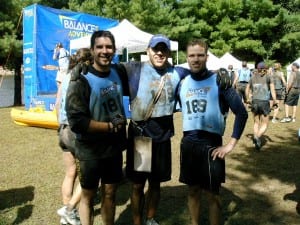
mudrunguide.com co-founder Brett Stewart was recently interviewed by SPRY Magazine on Mud Runs, here's the transcript:

Tell me about your personal experience with mud running. How many mud runs have you participated in? How did you get into the sport?
My background is in road racing and triathlons, in total I’ve completed well north of a hundred events of all lengths from a 5k to Ironman triathlon and ultramarathons. I got my start in mud runs or OCR’s (Obstacle Course Racing) through adventure racing back in the early 2000’s. OCR’s take a lot of inspiration from adventure racing, and there are many athletes who embrace both. Adventure racing has been around for decades, and was actually a discipline in the original X Games in the early 1990’s. Mark Burnett (of Survivor fame) factored heavily into the creation and proliferation of the sport.
I have one of the best jobs in the world, during research for my book Ultimate Obstacle Race Training, I was offered a behind-the-scenes peek at many races, and got to run courses over and over for testing and obstacle/course layout consulting. Like a kid in a candy store, at some race sites I had the great fortune to run from obstacle to obstacle, trying each out and then reporting back on changes or improvements that could be made. Aside from all that fun, there was a great amount of pride seeing the changes I affected enjoyed by thousands of racers on race day.
Obviously, mud runs have exploded in popularity over the past few years. Why is this? What do you think is the appeal of a mud run?
I’ve asked this very same question of about 30 different races all over the world, and the most common answer speaks to the wide demographic that can enjoy these races due to the relatively low barrier to entry – in short, pretty much anyone can complete one. From the fittest athletes to out-of-shape grandmothers, I’ve been front & center to witness athletes of all shapes, sizes, age, sex and level of physical ability conquer mud runs and OCR’s. Personally, I have assisted a partially paralyzed racer through a Super Spartan of about 8 miles and know of plenty other individuals completing these types of events with similar or worse physical impediments.
To compete in a triathlon, marathon, or event team sports, the barriers to entry are significantly higher and reliant on training & skill. With mud runs or OCR’s, as long as you are able to get from the start to the finish, completion is a strong possibility.
Are these events available to everybody, even beginners?
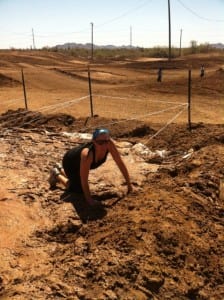
Generally, yes – although there are some incredibly extreme events that punish even the strongest of athletes, but beginners are strongly discouraged from participating in those. For the most part, a 5k distance mud run or OCR is usually designed for the widest of audiences, and beginners make up a statistically large portion of racers.
When you’re looking to do one of these events, what should you look out for? Are there any safety “red flags”? What are some of the inherent risks people should be aware of?
Prior to ever signing up for an event of any kind, it is extremely important to do some research into the event company; check for online reviews if they have held other races in the past and specifically focus on comments about the level of safety at previous events. Remarks about long lines or disorganization are small red flags, but any mention of racers feeling lost, unsafe or even remarks about injured individuals or poorly constructed obstacles are serious red flags that should make you think twice about plunking down your hard-earned money to put you or your family in danger.
You’ve got the well-known franchised events like the Tough Mudders and the Spartan Races and the Warrior Dash, but there are also a lot of spin-offs out there. In general, should participants be more wary of the local, small-scale events?
Any event company has the potential to put on a “bad” event, and the big three (Tough Mudder, Spartan Race and Warrior Dash) are not immune. Of course, with the larger budgets that are afforded by their huge appeal, the name brand events have more safety workers and construction staff on-hand to mitigate most issues. While many, many small events put on a great event, there are some who get in over their heads and put on poorly-received or potentially dangerous races. I have seen video of collapsing obstacles and heard of extremely rickety structures buckling under racers more than once, and that reinforces the importance of each racer doing their due diligence by researching the event company and reading through online reviews.
How should a newbie expect to train for this? Should they be in fairly good shape prior to the event?
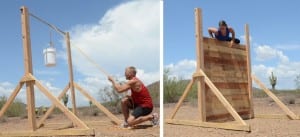 As a fitness author and personal trainer, the stock answer should be “yes, everyone should be well-trained and ready before toeing the line at their first race”, but I am also a realist; I know I wasn’t prepared for my first adventure race back in 2003 and absolutely had no idea what I was doing at my first triathlon in 2004! The most important part is to enjoy your first event, although you should absolutely take it easy and not exert yourself beyond your physical capacity. To that end, you absolutely need to schedule a physical before beginning any training or in advance of any type of athletic event.
As a fitness author and personal trainer, the stock answer should be “yes, everyone should be well-trained and ready before toeing the line at their first race”, but I am also a realist; I know I wasn’t prepared for my first adventure race back in 2003 and absolutely had no idea what I was doing at my first triathlon in 2004! The most important part is to enjoy your first event, although you should absolutely take it easy and not exert yourself beyond your physical capacity. To that end, you absolutely need to schedule a physical before beginning any training or in advance of any type of athletic event.
OCR’s and Mud Run obstacles are full of “self limiting” obstacles; quite literally you can only complete the challenges as fast as your skill level and fitness allow you to. Whether you’re running up hills or carrying heavy objects, you’re only going to go as fast as you’re physically able to – and that limit is different for every single individual.
Do you have any tips for first-timers? What should a first-timer know?
This may seem counter-productive as my book devotes more than one chapter to tips for first-timers, but unless you are the type that really likes to “peek behind the curtain” ahead of time, I suggest showing up at your first event with eyes open wide and to soak in the spectacle. You should be excited, nervous and have relatively no idea what to expect! During the race, watch around you for the technique that others are employing to get over obstacles and take your time while figuring it out for yourself; quite literally learning on the fly and making it up as you go along.
Now, if you’re one of the types that needs to know everything before setting foot on a course, then I have just the book for you!
Are any mud runs better suited to beginners than others? If so, which ones?
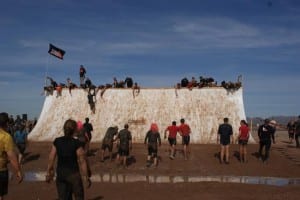
While the terms Mud Run and Obstacle Race are often used in place of each other, typically Mud Runs consist of fewer large obstacles and rely primarily on the terrain to challenge participants. OCR’s are usually more technically challenging and consist of barriers that demand more full-body strength. Just like road races, you should start with the shorter distances and progress your way up as your knowledge, conditioning and skill level improves. There are many 5k mud runs that feature basic obstacles like 6’ climbing walls and cargo nets that suit most beginners very well.
On the flip side, are any mud runs more challenging than others? If so, which ones?
Once you’ve cut your teeth on some smaller events, the sky’s the limit as you progress to longer or more challenging events; from 5 to fifty miles, there are events that challenge any racer. Tough Mudder races are the longest of the “household name” events, clocking in at 12 miles. From there, Iron Warrior Dash courses range from 14-16 miles long, and Spartan Ultra Beast is a whopping 22-plus miles of trails up and down a mountainside in Vermont. One of the most extreme events in the USA is Death Race (also held in Vermont) that has no official start or finish time, racers are given tasks to complete that incorporate mental and physical challenges over the course of approximately 72 hours. Surprisingly enough, there are even more insane OCR’s all over the world that feature aspects of wilderness survival and orienteering… that actually sound a lot like Adventure Races and bring this whole event closer to full-circle, albeit in an extreme way!
Brett Stewart is the author of Ultimate Obstacle Race Training, and co-founder of mudrunguide.com. An endurance athlete and personal trainer, Brett lives and trains in Phoenix, AZ.

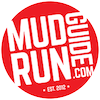
Leave A Comment